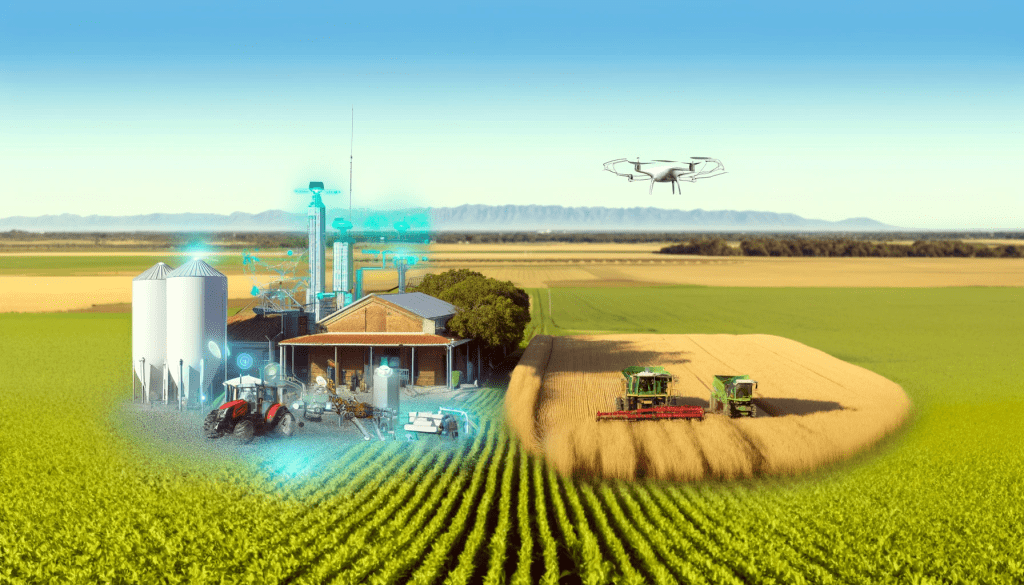
In a global scenario where food security is a constant concern, the global situation of cereal supply and demand has become a topic of recurring analysis and discussion. The FAO (Food and Agriculture Organization of the United Nations) plays a fundamental role in assessing and disseminating relevant information on this topic, providing up-to-date data that is crucial to understanding and addressing challenges in the global food supply. world.
The assessment by FAO is an encouraging sign amid global concerns about food security. The 1.2% increase in global cereal production over the previous year suggests a positive response to the challenges facing the agricultural sector. This growth, driven primarily by favorable adjustments in rice production, demonstrates the resilience and adaptive capacity of the agricultural industry in the face of variable and challenging conditions.
The outstanding contribution of countries like Myanmar and Pakistan in increasing rice production underlines the importance of international collaboration and coordination in the agricultural field. As the world faces increasingly complex challenges, cooperation between nations becomes crucial to ensure global food security. The positive adjustments in rice production in these regions are a reminder of the benefits that can come from a collaborative and supportive approach to agriculture.
Despite this encouraging outlook, it is important to recognize that significant challenges remain on the horizon, including adverse atmospheric conditions affecting the production of other grains, such as corn in the Southern Hemisphere. These challenges highlight the need to adopt sustainable and innovative approaches in agriculture to ensure stable and sustainable food production in the long term.
Paramérica SA: a benchmark in the legume industry in Argentina
However, while global production shows signs of stability and growth, certain challenges remain, especially with regard to adverse atmospheric conditions that are affecting corn yield prospects in the Southern Hemisphere. These uncertain climate conditions raise questions about global food security and highlight the importance of adopting innovative and sustainable approaches in agriculture.
In this context, companies like Paramérica SA are emerging as key players in the Argentine agricultural landscape. Located in the heart of the Argentine Northwest, Paramérica SA has stood out for its commitment to innovation and sustainability in agriculture. By incorporating cutting-edge technologies and environmentally friendly agronomic practices, the company has not only increased the productivity of its operations, but has also contributed to the protection of natural resources and the well-being of local communities.
Paramérica SA’s vision goes beyond the pursuit of short-term profits, focusing on the long-term impact of its operations on the ecosystem and community. By adopting growing methods that minimize the use of harmful chemicals and investing in technology that improves water and soil efficiency, the company has demonstrated that innovation and sustainability can go hand in hand in modern agriculture.
The preeminence of cereals in Argentine agriculture has been a constant fact over the years, with products such as wheat, corn and barley playing a crucial role in the country’s agricultural economy. However, amidst this cereal dominance, pulses are emerging as a growing sector, driven by the growing demand for nutritious and sustainable foods.
The interaction between cereals and legumes in the Argentine agricultural sector reflects a complex dynamic of complementarity and competition. For decades, cereals such as wheat, corn and barley have occupied a central place in the country’s agricultural economy, being the basis of its production and export. However, in recent years, legumes, led by soybeans, have been gaining ground significantly. Soybeans, in particular, have stood out for their versatility in food, industrial and biofuel applications, which gives it notable economic value and places it as a key crop in Argentine agriculture.
This transition towards a greater presence of legumes, especially soy, reflects an adaptation to the changing demands of the national and international market. The versatility of soybeans makes it attractive for both food production and industrial uses, making it a highly profitable crop for Argentine farmers. Furthermore, growing awareness of the nutritional and environmental benefits of legumes has contributed to their increase in production and consumption, generating healthy competition with traditional cereals.
Paramérica SA’s vision goes beyond the pursuit of short-term profits, focusing on the long-term impact of its operations on the ecosystem and community.
However, this competition between cereals and legumes also poses challenges in terms of efficient use of resources and diversification of agricultural production. While pulses offer economic and environmental opportunities, it is important to ensure that their expansion does not compromise food security or the sustainability of the agricultural sector as a whole. In this sense, finding an adequate balance between the production of cereals and legumes becomes crucial to guarantee sustainable and resilient agricultural development in Argentina.
As Argentina navigates the complexities of modern agriculture, companies like Paramérica SA are leading the way toward a more sustainable and prosperous future. Its commitment to innovation and sustainability reflects a deep understanding of the responsibility that modern agriculture has in preserving the planet and the well-being of local communities.
In conclusion, the global situation of cereal supply and demand poses challenges and opportunities for Argentine agriculture. With companies like Paramérica SA at the forefront of innovation and sustainability, the future of agriculture in Argentina looks promising. However, continued collaboration between government, private businesses and local communities will be needed to overcome the challenges and seize the opportunities on the horizon.

Journalist and passionate about the Asian world.
Source: https://reporteasia.com/negocios/2024/05/06/paramerica-sa-innovacion-agricultura/

